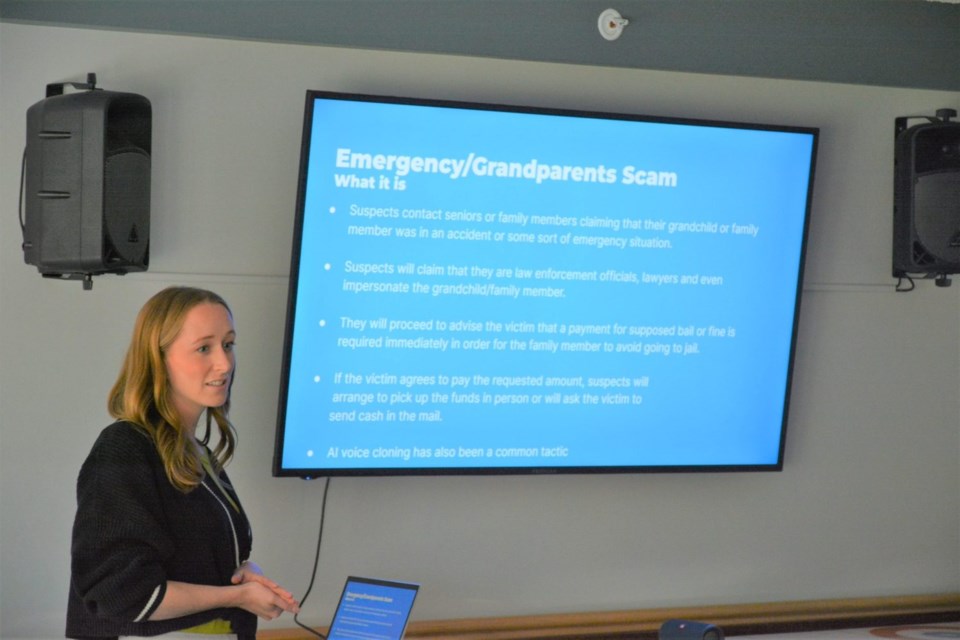Good information can prepare most people in the same way that an ounce of prevention is worth a pound of cure.
ATB advisor Lauren MacWilliams hoped to help her audience of attentive listeners during her presentation at Alpine Summit Seniors Lodge on Monday morning.
“It's really important to be aware of, just to protect yourself and just know what's out there and what to watch out for and what to do if you are affected by any kind of scam,” she said.
According to a RCMP report, the Canadian Anti-Fraud Centre (CAFC) received fraud and cybercrime reports totalling approximately $530 million in victim losses for 2022 alone. That is a nearly 40 per cent increase since 2021.
These figures likely only represent a small fraction of the real value as the CAFC estimates that only five to 10 per cent of people report fraud.
Less than $3 million of that $530 million ended up recovered. The ATB said there has been a huge increase in email, text and phone scams, and they take advantage of people from all demographic groups. It has become a large problem in Canada and especially Alberta.
So far this year, the CAFC has received 32,458 reports of fraud with $283.5 million already lost to fraud as of June 30, compared to 92,078 reports of fraud for all of 2022 with $531 million lost.
MacWilliams reviewed some of the most popular current scams to watch out for including romance and investment scams.
The elderly in attendance also heard of the trend called the grandparent scam, in which the scammer often pretends to be a friend or relative who says that they need money immediately. The victim, wanting to help their loved one, feels pressured by the sense of urgency.
As criminals, scammers are not bound by any sense of propriety while also having a seemingly endless source of creativity at their disposal to commit their thievery. That means that there are variations of scams, each just as devious as the next. MacWilliams offered the emergency grandparent scam as an example.
“A suspect will contact seniors or family members claiming that grandchild usually, or any type of family member, was involved in an accident or some kind of emergency situation,” she said.
“They'll claim that they're law enforcement, lawyers and sometimes they'll even impersonate the grandchild or family member. Something to really watch over here is there's even AI voice cloning right now. Even if it sounds like a family member, it doesn't necessarily mean that it is. The technology is advancing there.”
She offered a variety of tips on both what to do if you become a victim also.
The CAFC says that if you or someone you know has become a victim of a fraud, you should contact your local police service to report the crime and also report it to the centre online or by calling its toll-free number at 1-888-495-8501. If a financial loss did not occur, the fraud should still be reported to the CAFC.
It also encourages those who have information about deceptive marketing practices – a form of fraud in its own right – to report it to the Competition Bureau.
Editor's note: The story has been updated to correct the fraud stats from the CAFC.




